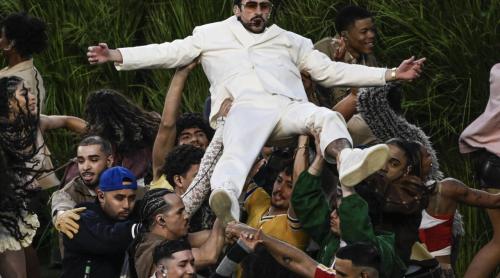
VLADIMIR TISMANEANU - Editorial - June 19 2004
The revolutions of 1989 resulted from both the popular insurgency and the new political framework set forth by Michael Gorbachev. Dissenting intellectuals played a critical role for these extraordinary regime changes.
A lot of people go these days over the results of the local elections in Romania and analyze them, so I will refrain from making any further comment apart from stating once again the importance of alternation to holding power: this comes forth once more as key to a democratic regime.
To democracies, the political game is never decided before hand and the hegemony of the over-sized party is no guarantee success. I will return to this subject in a later column.
I now go back to my favorite topics, which relate to the history of the political thought and the history of intellectuals. The 1989 revolutions had profound inner causes; among these stay the moral and ideological decline of the Leninist regimes, the cureless economic crisis, the social desperation, as well as the build up of resistance movements among the civil societies in the communist states of Central Europe.
Fifteen years ago, in June 1989, the first free elections in the history of the Soviet camp took place in Poland. The communists suffered a humiliating defeat and the free trade-union Solidarity became a compelling political force. In August 1989, Tadeusz Mazowiecki, a catholic intellectual and adviser to Lech Walesa, was named prime-minister.
These historic changes never would have occurred if the USSR continued to support the so-called Brezhnev Doctrine, which called for "a limited suzerainty." But Michael Gorbachev, who was elected in March 1985 the General Secretary of the Soviet Union Communist Party, gave up this imperialist thinking and proclaimed the emergence of "a new political thought" in the realm of international relations. Gorbachev was for rooting ideology out from relationships between countries belonging to different political systems. Also important is to understand that Gorbachevâs reforms were an attempt to answer the great challenge that Solidarity movement posed to the communist camp. The reformers in Kremlin were trying to safeguard what was left for saving out of the Soviet institutions.
What went on this time in Romania?
Nicolae Ceausescu vehemently opposed the reforms started by Gorbachev. When talking to other leaders of the Warsaw Pact countries, Ceausescu accused Gorbachev of betraying the interests of the socialism. Relationships between the two leaders were extremely tense. Ceausescu did not hide his exasperation with what he regarded as a policy meant to destroy socialism. According to old Stalinist traditions, Ceausescu thought of Romania as a fortress under siege, and opposed any attempt at liberalizing the regime.
Still, it was important that the domestic national Stalinism started to be questioned by people who were directly responsible for building up the communist system.
The frantic propaganda supporting the personality-cult of Ceausescu and his wife was more and more under challenge, and protests emerged against the mind-blowing campaign which, under the guise of "systematization" of the villages, meant in effect bringing them down. Weak voices, but nevertheless real, started to be heard coming from the Romanian civil society. Western radio networks were a huge help in that regard, with Radio Free Europe topping the list of the radio networks that helped keep alive hopes for change in Romania.
Dissenting intellectuals in all former communist countries in the region were instrumental in bringing down the protection shield of the ideology of the system which was turning obsolete by the day.
In Romaniaâs case, it is worth mentioning the dialogue between Dan Petrescu and Liviu Cangeopol, the texts published in Agora, and the letters signed by Doina Cornea.
I would also remind here the interview poet Mircea Dinescu gave to the French newspaper Liberation, in March 1989.
As a historian of the demise of communism, I regard that interview as an effort to stay in tune with similar stances of dissenting intellectuals in Poland, Hungary and Czechoslovakia. Mircea Dinescu grasped the once in a life time chance put forth by the Gorbachevâs reforms: "I do not know if Gorbachev is regarded as a good leader by the peoples under his rule, but for the millions who lived in humiliation for decades in Poland, Hungary, Bulgaria, Czechoslovakia, GDR and Romania, he is the one to bring the wake-up call, he is the Messiah of the socialism with a human face." These words, so clearly stated, brought upon the writer the constant surveillance of Securitate, and he was actually held under house-arrest. Those who stood by the harassed poet, like Andrei Plesu and Mihai Sora, became victims of reprimanding in their turn.
I recalled these facts because they happened 15 years ago, proving that Romania had its own voices who cried for dignity and that its civil society was not totally wiped out.
There is a tradition of independent thinking in Romania, that we have the duty to protect against forgetfulness or denigration.
Translation: ANCA PADURARU
Citește pe Antena3.ro

















